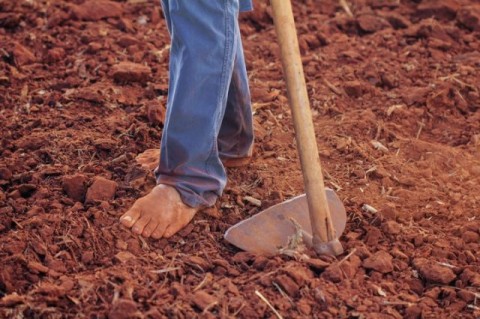Latest News
- Fiesta Hendersonville
- Apparent Elderly Couple Murder-Suicide in Waynesville
- Music on Main Hendersonville Summer 2024
- City of Asheville: Over $4.8 M Affordable Housing Projects
- Continuum of Care Elects Board Members: 2024 Point-In-Time Count Numbers

 WNCTIMES
Serving The Citizens of Western North Carolina Since 1995
WNCTIMES
Serving The Citizens of Western North Carolina Since 1995 Tree Huggers: From Bishnoi Villagers to Climate Activists
The term "tree hugger" has become a familiar label for those who advocate for the protection
of the environment, especially trees.
But where did the term come from, and what does it signify?
The origin of the term "tree hugger" dates back to 1730 in India, when a group of Bishnoi villagers decided to protect the trees in their community from being cut down to make way for a palace. The villagers, both men and women, hugged the trees to prevent them from being felled. Unfortunately, the foresters who were ordered to cut down the trees did not hesitate to kill the villagers in their attempt to carry out the orders. However, this tragedy led to a royal decree prohibiting the cutting of trees in any Bishnoi village. The Bishnoi people continued to protect the trees in their community, and today their villages remain green oases in an otherwise arid landscape.
The Bishnoi's example inspired the Chipko movement in the 1970s, which saw a group of peasant women in the Himalayan hills of northern India hugging trees to prevent them from being cut down. The movement, also known as tree satyagraha, quickly spread across India, leading to reforms in forestry practices and a moratorium on tree felling in Himalayan regions.
Today, the term "tree hugger" has evolved to encompass anyone who advocates for the protection of trees and the environment. People who identify as tree huggers are concerned about the impact of deforestation on climate change and biodiversity loss. They advocate for sustainable forestry practices, reforestation, and the protection of old-growth forests.
In recent years, the term "tree hugger" has become synonymous with the climate justice movement, as people recognize the connection between deforestation, greenhouse gas emissions, and the impacts of climate change. Tree huggers are working to promote policies that address the root causes of climate change, including reducing carbon emissions, transitioning to renewable energy sources, and protecting forests and other natural ecosystems.
The term "tree hugger" may have originated as a label for a small group of villagers in India, but today it has come to symbolize a global movement of people who care deeply about the environment and the future of the planet. As the climate crisis continues to escalate, the role of tree huggers and their advocacy for sustainable, equitable solutions has become more important than ever.
Marjorie Farrington
Comments (0)
When you subscribe to the blog, we will send you an e-mail when there are new updates on the site so you wouldn't miss them.
About the author
Artificial Intelligence: A Potential Solution for Communities Struggling with Job Loss
Communities that have lost major employers, such as factories or mines, often face significant economic and social challenges. The loss of these employers can result in high unemployment rates, ...
NC Homesteaders MEETUP Fletcher April 26, 2019
North Carolina Youtube Homesteaders MEETUP!When: April 26, 20195pm - 7pmWhere: Bill Moore Community Park (aka fletcher park)85 Howard Gap RoadFletcher, NC 29732 Justin's channel: https://bit.ly/...
 How to resolve AdBlock issue?
How to resolve AdBlock issue? 
